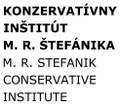

Challenge
Today, both Slovakia and the United Kingdom have new centre-right governments that have come to power in the wake of the grave economic downturn that commenced in 2008.
Engulfing the United States of America, great swathes of Europe, the Middle East and further afield, the recent global economic downturn presents profound challenges for those who seek to champion the principles of life, liberty and property, or to simply put it another way, the free market.
Today, alongside many others, the Slovak and British governments face substantial fiscal problems. There is widespread talk of and planning for state expenditure cuts, not to mention controversy over the elbowroom afforded to those countries, which, like Slovakia, are increasingly linked to the political economy that is the Eurozone.
Crisis
For free market Conservatives, classical liberals and libertarians alike, the historic challenge is clear. In the media, amongst most intellectuals and indeed amongst many of those who themselves work in the financial services sector, this crisis is the result of greed, capitalism and the unfettered free market.
In today’s popular mind, this is a crisis of western laissez-faire and all the talk is of market failure. Listen all around you and you will be told that our woes are the consequence of a lack of state interventionism and that we need stronger regulation.
Not Capitalism
What is interesting about this perspective is the unquestioned assumptions that it rests upon. For let us be clear, most observers really believe that our current arrangements represent a free market. Forget the size of the state and all its taxation. Forget social security and the welfare state. Forget state planning, regulations and interventionism.
Crucially, an overwhelming proportion of our respective populations believe that our financial services sector is quintessentially free market and laissez-faire.
When BBC Television does an interview in the City of London with a view of the Bank of England in the background, people unquestioningly believe that what they are watching is an institution of the free market. When they physically hold a bank note, they believe that as money these notes are the essence of capitalism.
Yet, from a classical liberal and libertarian perspective the underlying infrastructural architecture of our economy has very little to do with the free market and a lot more to do with central planning and top down political control and direction.
To those of us in the Austrian School of Economics, a central bank is just that: a central state bank. The pound, like the Euro, is a nationalized monopoly fiat currency. Inflation targeting by a committee of state appointed planners has nothing to do with the free market. When it creates a credit bubble by keeping interest rates too low, this is the result of epistemological state failure not genuine bottom up price signals.
In a free society, there would be no central bank. There would be competing, private currencies and in this world the whole paradigm of fractional reserve banking would be severely questioned. Moreover, having lost much of their interventionist power, politicians would not be able to deficit finance and therefore use inflation as a hidden tax.
To a genuine free marketeer, even the state laws of limited liability are a distorting and highly questionable factor in our organisational and commercial life. For as a state intervention they encourage moral hazard and enable those with power to avoid the necessary consequences of their actions.
Reform
Today, free marketeers like to talk about health and social care reform. They dwell on problems with the Eurozone and bailouts for other countries, not to mention banks. All of these issues are important. All of these things have to be thought through. However, it is my contention that there are even greater debates to be had given the scale of this crisis and its truly historic nature.
Let me be clear. I believe that if Conservatives, Classical liberals and Libertarians do not challenge - head on – the prevailing view that our society is free market then we will be giving our fundamentally confused and coercive enemies an unnecessary and disastrous historic victory.
Always remember, he who controls the past, controls the future. If you want to have a real impact on the future, you are wise to make sure you do not let others control the story of the past.
It is in this context that to best promote non-state and independent forms of welfare, health, social care, education, industry, transport, trade and law enforcement, it is vital that we all attend to the underlying infrastructural and socio-economic architecture of our age. This means that we understand and explain to others why our banking, monetary and economic systems are not borne of the free market but are invariably directed by politics, top down power and coercion. And that it is these elements, which have demonstrably caused our current problems.
In today’s world a sound analysis of classical liberal political economy is more relevant than ever before. It is time we all understand and explain that this crisis is the result of state failure and that what we need is less government and more freedom.
 Tim Evans is the Chief Executive of the Cobden Centre, Chairman of the Economic Policy Centre, a Consultant Director with the Adam Smith Institute and President of the Libertarian Alliance.
Tim Evans is the Chief Executive of the Cobden Centre, Chairman of the Economic Policy Centre, a Consultant Director with the Adam Smith Institute and President of the Libertarian Alliance.
Article is an abstract of the lecture to be presented at the Conservative Economic Quarterly Lecture Series (CEQLS) held by the Conservative Institute of M. R. ©tefánik in Bratislava on September 20, 2010. More information is available here.
Article was published in Slovak language in Conservative Letters 07-08/2010, a newsletter of the Conservative Institute.